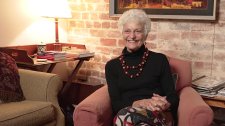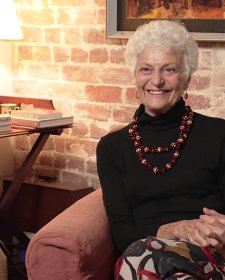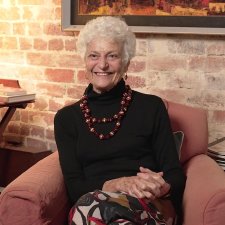- About us
- Support the Gallery
- Venue hire
- Publications
- Research library
- Organisation chart
- Employment
- Contact us
- Make a booking
- Onsite programs
- Online programs
- School visit information
- Learning resources
- Little Darlings
- Professional learning
Fiona Stanley AC (b. 1946), paediatric epidemiologist, is a passionate advocate for children and young people. Having studied in Perth, the USA and the UK, Stanley returned to Western Australia to establish university and government health research programs. From the late 1980s she contributed to worldwide research showing that a maternal diet rich in folic acid reduces the likelihood of a baby being born with a neural tube (spinal cord) defect. In Western Australia, three years after commencement of the world's first population program to reduce the incidence of spina bifida through intake of folic acid, the rate of its incidence was nearly halved. Stanley also discovered that cerebral palsy is not due so much to birth trauma as to events earlier in pregnancy, such as infections or placental problems which disrupt normal brain development. Her initiative Ngunytju Tjitji Pirni, an enhanced care service for Aboriginal women and children in the Eastern Goldfields of WA, was the first of its kind in Australia. Stanley has written more than 300 papers and book chapters and given many presentations. She was the founding director of the Institute for Child Health Research in 1990, and as a result of her lobbying, the Australian Research Alliance for Children and Youth (ARACY) was launched in 2002. She was the 2003 Australian of the Year. The Fiona Stanley Hospital, named in her honour, opened in Perth in 2014. A UNICEF Australian Ambassador for Early Childhood Development, Stanley is the founding director and Patron of the Telethon Kids Institute, and a Distinguished Research Professor at the School of Paediatrics and Child Health at University of Western Australia.
Collection: National Portrait Gallery
Commissioned 2011
© Mary Moore



On one level The Companion talks about the most famous and frontline Australians, but on another it tells us about ourselves.



Fiona Stanley on her career as a paediatric epidemiologist, and working with Aboriginal communities.



Visit us, learn with us, support us or work with us! Here’s a range of information about planning your visit, our history and more!